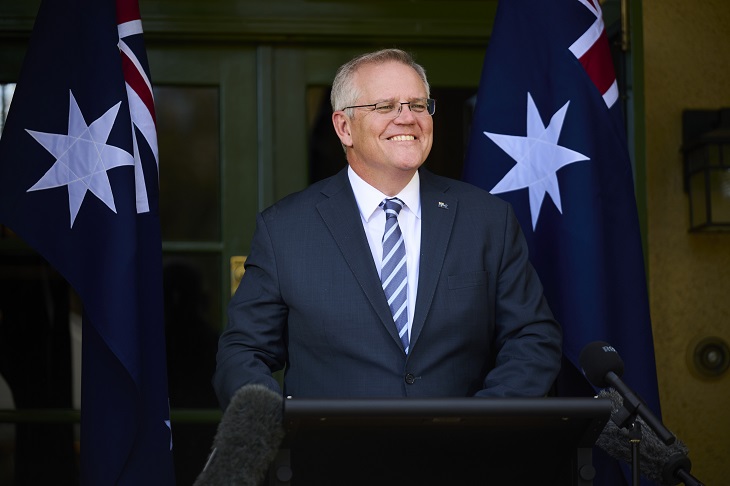Prime Minister Morrison’s curious accretion of portfolios, in itself no formal breach of the Constitution, raises a fundamental issue exposed by the pandemic.
This is the whittling away of the checks and balances on the exercise of executive power which have prevailed even in colonial times.
This was that any significant exercise of executive power, for example, the making of regulations, would go to the executive council where a person other than the minister, normally the governor (including in this comment the Governor-General), would decide.
This would not be to approve the substantial policy issue. That would have been already decided by the cabinet or such process the cabinet had approved.
The role of the governor was to ensure that proper process was followed, including the usual checks and balances consistent with constitutional government.
And as far as the federal government is concerned, the founders would surely have assumed the process with which they would have been familiar would be followed.
After all, it is fundamental in a constitutional democracy that the person who proposes a law, including a subordinate law, is not the one who makes it.
The danger of this was demonstrated in the 2020 Brett Cattle Case concerning the live cattle export ban. There the Federal Court found the minister adopting the ban had committed the civil wrong of misfeasance in public office. Acting alone, he had gone beyond the powers granted by the legislation.
This demonstrates the fundamental proposition that he who would make a regulation or other subordinate legislation should be the last person to decide whether he has the power to do this. It should be the Governor. As a result of this misfeasance, it will be the taxpayers, not the minister, who will be paying the massive damages in this case.
As the distinguished jurist, Sir Guy Green, stated in his celebrated Menzies Oration, the advice to the governor should contain:
- A clear statement of precisely what it is that the Governor is being asked to do.
- A reference to the source of the power to take that action.
- Particulars of any conditions which need to be satisfied before that power can be exercised.
- Explicit assertions by a minister stating how those conditions have been satisfied.
This means that something similar to the explanatory memorandum that accompanies draft legislation should be provided with the advice.
Moreover, the reasons for the proposed regulatory exercise should be made publicly available and not kept secret, as was so often the case during the pandemic. Secrecy should be reserved for such matters as defence, not health issues. In fact, the pandemic was marked by too much being hidden from the people, such as the reasons for closing down the NSW construction industry at a cost of $1.4 billion.
As to the exercise of federal powers, I was asked early in the pandemic by an immigrant family concerning the government’s blank refusal to let them return home to spend their last few years in Europe. On looking at the legislation, I had no doubt that this was beyond the minister’s powers. Unfortunately, they didn’t have the funds to test this. One died while the travel departure ban was in force.
Apart from the executive council process, there is an additional and very important check on the making of regulations and other instruments which has also been whittled away.
Based on the principle that since these have the force of law, both Houses of Parliament should have the opportunity to disallow them. After all the making of legislation requires the support of both Houses.
This surely demonstrates the good sense of restoring the Queensland Upper House. The usual excuse that this would only mean more politicians is easily answered. They should just reduce the size of the Lower House proportionately.
As to the size of the problem, a recent Senate report finds that about 20 per cent of key instruments at the height of the pandemic, together involving an enormous expenditure of public money, were not disallowable.
The excuse that this authoritarian rule was justified in relation to the pandemic is not justified. The reason we did so well is the reason why the Japanese did not occupy us as the Germans did most of continental Europe. This is the fact that we are a remote island nation.
As such we should have done better. Without lockdowns, Taiwan (which is next door to the source of the pandemic) and Japan did much better. On the Japanese results alone, it would seem that 6,000 more Australians died than if we had followed the Japanese practice which involved no lockdowns.
What is needed now is a Royal Commission into the Australia-wide administration of the pandemic.
At least three strong and independent Royal Commissioners should be appointed and specifically allowed to take different positions so that the government would not be locked by the views of one person.
Their report will be crucial in achieving fundamental constitutional repair.
Got something to add? Join the discussion and comment below.
Get 10 issues for just $10
Subscribe to The Spectator Australia today for the next 10 magazine issues, plus full online access, for just $10.

























Comments
Don't miss out
Join the conversation with other Spectator Australia readers. Subscribe to leave a comment.
SUBSCRIBEAlready a subscriber? Log in